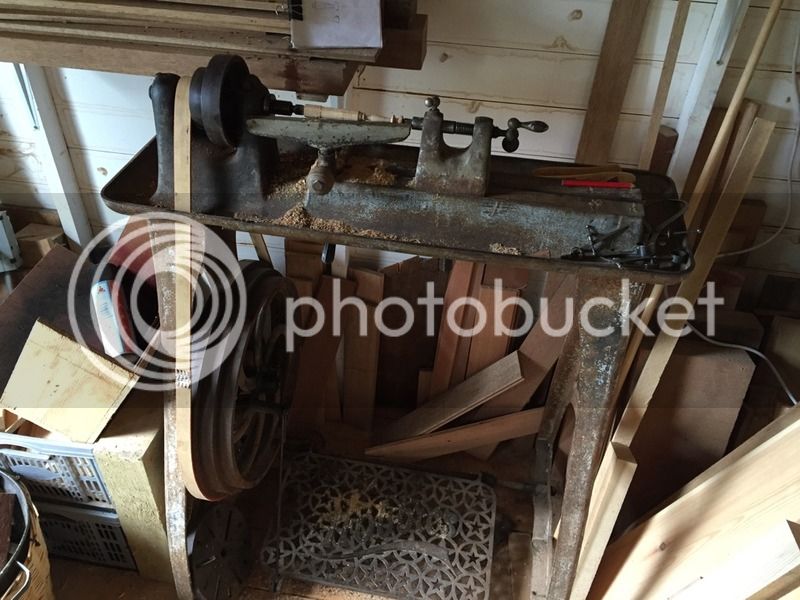hartley
New member
Hi, I wonder if anyone can help another newbie to woodturning make the important decision regarding the purchase of a lathe.
Whilst I am not new to working with wood I have never turned it.
After looking at what is on offer out there I have a small list of potential candidates. Do I go for something second-hand and British built, Union Graduate, Wadkin BZL, (I have two Wadkin BAOS machines in my workshop so favour this maker), or equivalent Dominion machine. Or do I opt for a new Far Eastern made machine? I have been looking at the Axminster AT1628VS and Jet 3520B.
If I go the second hand route I can see the pros as…
A) initial purchase lower although I’d consider converting to variable speed at later date
B) solid British build quality
and the cons…
A) parts availability (but would that be an issue so long as you check all is well on purchase?)
B) the machines mentioned have the motors near the floor, longer belt, does this make running the machine rougher and more noisy?
C) New chucks may be an problem fitting to old machine
If I go the new Far Eastern route, the cons…
A) The luxury of variable speed
B) Motor close to spindle, is this an issue?
C) It’s brand new…
The cons…
A) Quality maybe poorer than the old British machines
B) More expensive
I am aware that other maker’s machines may be suggested but I don’t really want to make what to me appears to be a difficult decision worse. My max budget is ideally around the £2000 mark including variable speed option but I know the Jet machine will exceed this, (another question, is the Jet worth the extra £1100 over the Axminster machine?).
I have seen in the metal the two new machines and a Graduate but sadly other than photos not seen the Wadkin, (is it better than the Graduate?). I am also aware there is a bigger Wadkin, the RS suspect it is too big!
I would like to by an older British machine but are these new machines a better bet?
Sorry about the drawn out questions, but I want to get it right…
Hope you can help.
Derek
Whilst I am not new to working with wood I have never turned it.
After looking at what is on offer out there I have a small list of potential candidates. Do I go for something second-hand and British built, Union Graduate, Wadkin BZL, (I have two Wadkin BAOS machines in my workshop so favour this maker), or equivalent Dominion machine. Or do I opt for a new Far Eastern made machine? I have been looking at the Axminster AT1628VS and Jet 3520B.
If I go the second hand route I can see the pros as…
A) initial purchase lower although I’d consider converting to variable speed at later date
B) solid British build quality
and the cons…
A) parts availability (but would that be an issue so long as you check all is well on purchase?)
B) the machines mentioned have the motors near the floor, longer belt, does this make running the machine rougher and more noisy?
C) New chucks may be an problem fitting to old machine
If I go the new Far Eastern route, the cons…
A) The luxury of variable speed
B) Motor close to spindle, is this an issue?
C) It’s brand new…
The cons…
A) Quality maybe poorer than the old British machines
B) More expensive
I am aware that other maker’s machines may be suggested but I don’t really want to make what to me appears to be a difficult decision worse. My max budget is ideally around the £2000 mark including variable speed option but I know the Jet machine will exceed this, (another question, is the Jet worth the extra £1100 over the Axminster machine?).
I have seen in the metal the two new machines and a Graduate but sadly other than photos not seen the Wadkin, (is it better than the Graduate?). I am also aware there is a bigger Wadkin, the RS suspect it is too big!
I would like to by an older British machine but are these new machines a better bet?
Sorry about the drawn out questions, but I want to get it right…
Hope you can help.
Derek


































